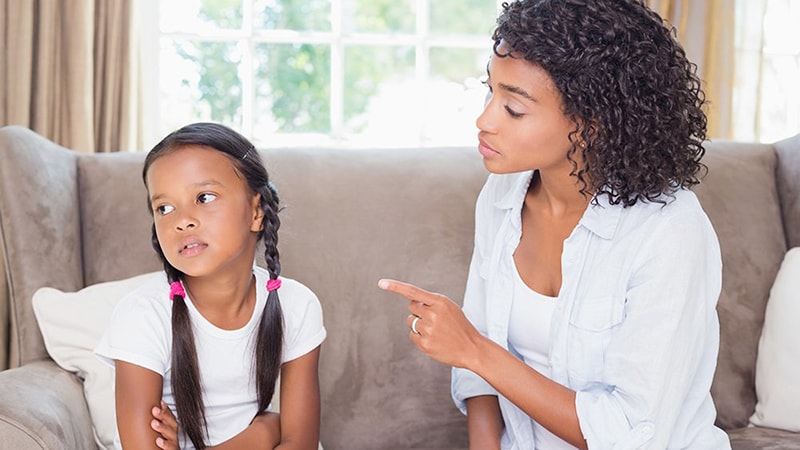 One of the most common questions among parents of teens and/or pre-teens is when it is okay to leave them home alone.
One of the most common questions among parents of teens and/or pre-teens is when it is okay to leave them home alone.
Perhaps a situation has arisen recently, such as a snow day, failed childcare or after-school time before a parent arrives home from work.
Or, maybe your children are simply reaching that age when others are letting their children stay at home alone causing you to figure out how you feel about it.
Whatever the reason, it is an experience that will more likely than not cause a certain degree of anxiety and nervousness for you, and possibly your child (even if they adamantly deny it).
Keep in mind that the answer to “when it is okay” is not 100% in your hands.
There is some law dictating the answer.
However, beyond this, much of your decision as a parent is also on a case-by-case basis.
Each child’s readiness varies based on factors including maturity, independence and responsibility.
One 12-year old child may be ready for a full evening alone, whereas another 12-year old child may only be ready for 1-2 hours alone.
Whenever they are ready, though, planning and communication can help ensure the experience is positive which will, turn, help give them confidence, self-reliance and independence.
Factors to consider when leaving your kids at home
The Law
Generally, a child must be at least 12 year old before they can be legally permitted to stay at home alone with no supervision.
This varies by states and localities, so consider checking your local law beforehand.
Other useful resource is the National SAFEKIDS Campaign.
You may also call your local law enforcement for additional information.
Responsibility
Whether your child is age 12 or age 16, he or she must be responsible.
I repeat—your child must be responsible.
Do they exhibit responsibility with their homework? chores? safety?
Or, do they routinely dodge their homework so they can hang out with their friends or watch TV?
How they handle these day-to-day tasks is a sign of their overall sense of responsibility.
Judgment & Reasoning
In line with responsibility is the question of whether your child has the judgment, thinking and reasoning abilities necessary for him or her to be alone without supervision.
How do they (and will they) handle unexpected circumstances?
Will they remember not to answer the door?
Do they handle decisions and tasks impulsively, with little thought?
Their Feelings
Does your child even want to stay at home alone?
Especially for pre- and early teens, they may afraid and really not want to stay home.

Don’t make them stay home alone just because other kids their age are.
Try talking to them about specific concerns they may have to ease their mind beforehand and help them become ready, but wait until they are ready if at all avoidable.
If they are older and a situation calls for it, try talking to a neighbor nearby so your child feels more comfortable.
Number of Children
Maybe your situation calls for an older child to be home alone in charge of younger siblings.
This can be a bad idea depending on your circumstances.
If they do not typically get along, you may find yourself with a mess on your hands upon returning home.
“Trial runs” are a very good idea in these situations, in particular.
Leave them home alone for a short period of time, maybe a half hour, to test it out and see how they do.
This will help not only your peace of mind, but may also permit them to adjust to being responsible and keeping things under control when no adults are around.
Safety
Another very important factor to consider is safety.
One of the most influential aspects in this regard is your neighborhood.
If your neighborhood is generally safe and there is little crime or unsafe situations, just make sure your burglar alarm works and the children have the appropriate emergency contact numbers.
However, if your neighborhood tends to attract crime, whether minor or serious, it may not be a wise decision to leave your children home alone.
A better option would be to find someone, perhaps a relative or friend, to keep an eye on them while you are out.
You must also confirm that your child knows now to properly handle emergency situations.
Will they know what to do if there was a fire?
Attempted burglary?
Tips & Ideas
Small Increments
Rather than the first experience be 4-5 hours, try leaving your child home in small increments of time.
At first, you may try leaving them alone for 15 minutes while you run to the gas station on the corner.
Next, move up to 30 minutes while you pick up milk from the local grocery store.
Gradually increase the amount of time so that both you and your child can attain a healthy comfort level, working through any issues that arise little by little.
This will also increase your child’s confidence level gradually and help them slowly embrace the new level of trust you are showing.
Rules & Expectations
Do not be afraid to repeat what you expect from your child while home alone.
Reiterate the basic house rules and emphasize and rules specific to the unsupervised situation.

If they are supposed to feed their younger brother or sister, don’t hesitate to remind them a couple times.
If the rule is that no friends are allowed to visit in your absence, then remind them.
If may also help to have a sheet of rules written out in clear view. Is TV allowed? What channels? What about the computer?
Emergency Information
When you bring up this topic, your child may say something like, “I know, mom. Call 9-1-1.”
However, it is always better go be safe than sorry.
Be sure you have a fire extinguisher, confirming that your child knows how to operate it.
Also be sure your child has all important telephone numbers including your cell phone, neighbors, nearby relatives and perhaps even a landline to the restaurant or building where you can be reached.
Safety
Besides knowing emergency information, you should also make sure your house itself is safe.
Do you have firearms in the home?
If so, these should be locked up and inaccessible.
Are medicines locked up and/or not accessible?
What about harmful cleaning supplies? Put them out of reach also. You never know.
Check-Ins
It may be a good idea, especially at first, to have a neighbor or relative stop over briefly to check in while you are out.
Not only will this help both your and your child’s mind if there are still feelings of anxiety, it may help avoid preventable problems especially if there are more than one child at home.








